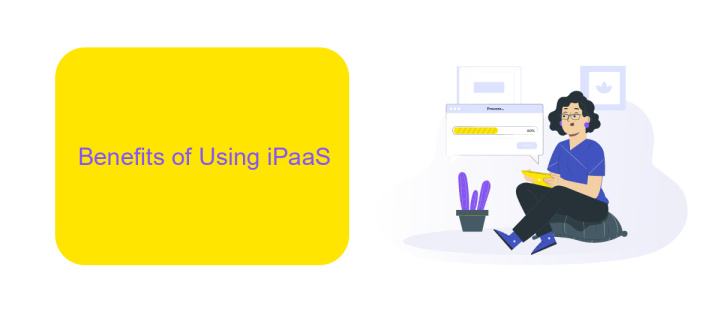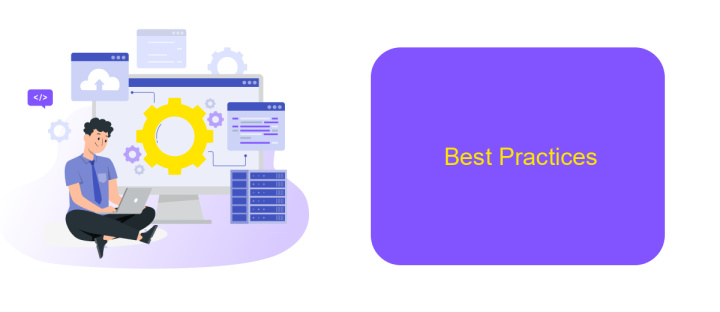iPaaS Case Studies
In today's rapidly evolving digital landscape, businesses are increasingly turning to Integration Platform as a Service (iPaaS) solutions to streamline their operations and enhance connectivity. This article delves into compelling iPaaS case studies, showcasing how various organizations have successfully implemented these platforms to drive efficiency, innovation, and growth. Discover real-world examples that highlight the transformative power of iPaaS in diverse industries.
Introduction
In today's fast-paced digital landscape, businesses are increasingly turning to Integration Platform as a Service (iPaaS) solutions to streamline their operations and enhance connectivity between disparate systems. iPaaS platforms offer a unified approach to integrating various applications, data sources, and services, thereby enabling seamless data flow and operational efficiency.
- Improved data synchronization across multiple platforms
- Enhanced operational efficiency and reduced manual tasks
- Scalability to meet growing business demands
- Cost-effective integration solutions
One notable example of an iPaaS solution is ApiX-Drive, which allows businesses to automate workflows and synchronize data across different applications without requiring extensive coding knowledge. By leveraging such platforms, companies can focus more on strategic initiatives rather than getting bogged down by integration challenges. This section explores various case studies highlighting the transformative impact of iPaaS solutions across different industries.
Benefits of Using iPaaS

Utilizing an Integration Platform as a Service (iPaaS) offers numerous advantages for businesses looking to streamline their operations and enhance connectivity. One of the primary benefits is the seamless integration of disparate systems, allowing for real-time data synchronization and improved workflow efficiency. This capability eliminates the need for manual data entry and reduces the risk of errors, ultimately saving time and resources. Additionally, iPaaS solutions like ApiX-Drive provide user-friendly interfaces and pre-built connectors, making it easier for organizations to set up and manage integrations without requiring extensive technical expertise.
Another significant benefit of using iPaaS is its scalability and flexibility. As businesses grow and evolve, their integration needs can become more complex. iPaaS platforms are designed to adapt to these changes, offering scalable solutions that can handle increasing data volumes and integration demands. Moreover, iPaaS enables businesses to quickly respond to market changes and customer needs by facilitating the rapid deployment of new applications and services. With robust security features and compliance with industry standards, iPaaS ensures that data remains protected while enabling seamless connectivity across various systems and applications.
Case Studies

In the rapidly evolving landscape of digital transformation, businesses are increasingly turning to Integration Platform as a Service (iPaaS) solutions to streamline their operations. These platforms enable seamless integration of various applications and data sources, significantly improving efficiency and reducing manual workload. One such example is ApiX-Drive, which has proven to be an invaluable tool for numerous organizations.
- Retail Chain Integration: A large retail chain utilized ApiX-Drive to connect their e-commerce platform with inventory management systems, ensuring real-time stock updates and reducing the risk of overselling.
- Healthcare Data Synchronization: A healthcare provider leveraged ApiX-Drive to integrate patient management systems with electronic health records (EHR), enhancing data accuracy and improving patient care.
- Marketing Automation: A marketing agency used ApiX-Drive to synchronize their CRM with various marketing tools, enabling more personalized and timely communication with clients.
These case studies illustrate how iPaaS solutions like ApiX-Drive can drive significant improvements across different industries. By automating data synchronization and integration processes, businesses can focus more on their core activities, leading to increased productivity and better outcomes.
Best Practices

When implementing iPaaS solutions, it's crucial to follow best practices to ensure seamless integration and optimal performance. Start by thoroughly understanding your business requirements and identifying the key processes that need integration. This foundational step helps in selecting the right tools and platforms tailored to your needs.
Next, prioritize data security and compliance. Ensure that the iPaaS solution you choose adheres to industry standards and regulations. Implement robust security measures to protect sensitive data throughout the integration process.
- Conduct a detailed assessment of your existing systems and workflows.
- Choose an iPaaS platform like ApiX-Drive that offers flexibility and scalability.
- Regularly monitor and update your integrations to keep them running smoothly.
- Provide training and support for your team to effectively use the iPaaS solution.
By following these best practices, you can maximize the efficiency and reliability of your iPaaS integrations. Leveraging a versatile tool like ApiX-Drive can simplify the process, allowing you to focus on your core business activities while ensuring seamless data flow across your systems.
Conclusion
The case studies presented highlight the transformative potential of iPaaS solutions in streamlining business operations and enhancing data integration. By leveraging platforms like ApiX-Drive, organizations can seamlessly connect disparate systems, automate workflows, and improve overall efficiency. These real-world examples demonstrate how iPaaS can address common integration challenges and drive significant operational improvements.
In conclusion, adopting an iPaaS solution such as ApiX-Drive can be a game-changer for businesses looking to optimize their integration processes. The ability to effortlessly synchronize data across various applications not only saves time but also reduces the risk of errors, leading to more accurate and reliable business insights. As the demand for seamless integration continues to grow, iPaaS platforms will undoubtedly play a crucial role in shaping the future of business technology.
- Automate the work of an online store or landing
- Empower through integration
- Don't spend money on programmers and integrators
- Save time by automating routine tasks
FAQ
What is iPaaS and how can it benefit my business?
How can iPaaS help in automating my business processes?
What are some common use cases for iPaaS in different industries?
How secure is the data handled by iPaaS solutions?
Can iPaaS solutions be customized to fit specific business needs?
Apix-Drive will help optimize business processes, save you from a lot of routine tasks and unnecessary costs for automation, attracting additional specialists. Try setting up a free test connection with ApiX-Drive and see for yourself. Now you have to think about where to invest the freed time and money!


